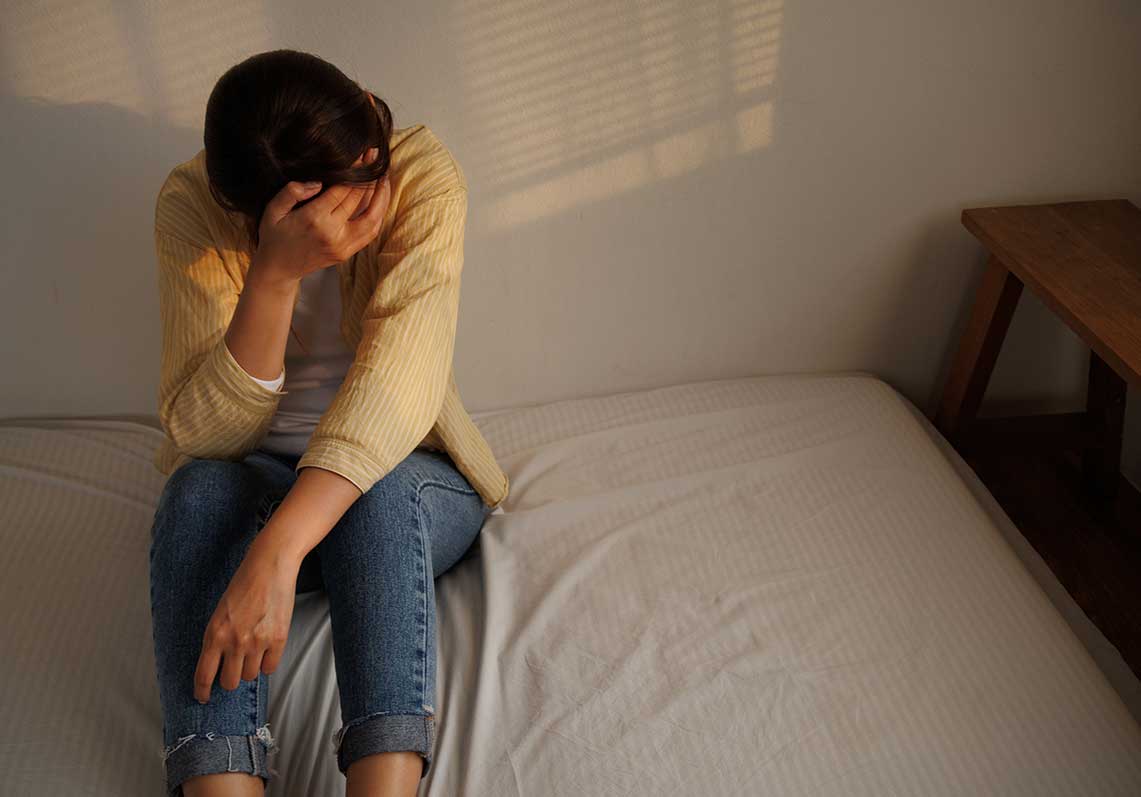The idea of having a difficult experience often deters first-timers from psychedelics, and it is one of the main causes of pre-session anxiety. The bad news is that they do happen; the good news is that they are rare, and with proper preparation (incorporating the 6 S’s) and assistance from a psychedelic practitioner, they are even rarer.
Furthermore, with the right support and proper integration, even a difficult experience can be effectively managed and lead to positive outcomes.
What are Difficult Psychedelic Journeys?
You don’t have to look long or hard to find reports of “bad trips”. We’ve discussed them in The Third Wave community, and you’ll find scary reports all over sites like Erowid.
They usually refer to negative experiences, including unpleasant hallucinations, combined with feelings of anxiety, fear, and paranoia.
However, as highlighted in a community post by Vanessa C., such an experience can still be eye-opening, thought-provoking, and even life changing.
That’s why it’s best to think of so-called “bad trips” as “difficult journeys”, ones that can be mitigated with proper preparation and the assistance of a good psychedelic coach, and experiences that can still be successfully integrated.
What Does a Difficult Journey Feel Like?
Everyone’s experience is different, but a difficult journey may include:
- Dysphoric Hallucinations—Hallucinations that present alongside feelings of unease.
- Paranoia—An unshakeable feeling that something bad will happen.
- Reckless Behavior—The individual may do or attempt to do something that puts them and others at risk of harm.
- Emotional Disturbances—An inability to control negative emotions to the point where they feel all-consuming.
- Agitation—The individual may feel uncomfortable in their surroundings and themselves.
How Common are Difficult Psychedelic Experiences?
To the uninitiated, difficult psychedelic journeys might seem very common. They’re the ones that the average person hears about. Most of the time, they’re hearing a story that has been told and retold so many times it has lost all semblance of reality, like a game of psychedelic telephone.
They do happen, of course, but they’re rarely as terrifying as those semi-urban legends would have you believe. They’re also not as common as psychedelic detractors might think.
A survey conducted on 613 lifetime users found that over 82% “never” or “rarely” had bad trips, while over 90% stated that those negative experiences didn’t last more than a day, with no impairment in function or cognition lasting beyond 24 hours. (1)
Can Difficult Journeys Persist?
A study published in 2010 looked at data from 110 healthy volunteers, all of whom had been given oral doses of psilocybin. It noted that “most subjects described the experience as pleasurable, enriching and non-threatening”, and added that just two participants had experienced the levels of anxiety and panic we would typically associate with a difficult journey. (2)
Contrary to what you may have seen in the media, on TV, and in films, these experiences didn’t persist or cause any long-term issues. In fact, the study notes that both cases were successfully managed with interpersonal support, with no pharmacological intervention needed. During follow-ups, none of the subjects showed signs of substance abuse, psychosis, or ongoing perception issues.
That doesn’t mean that there will be no persisting issues, of course. Hallucinogen Persisting Perception Disorder (HPPD) can lead to lasting visual hallucinations following psychedelic experiences. But it’s incredibly rare, and for many individuals, the effects present more as minor visual disturbances and are not always described as unpleasant. (3)
How to Manage Difficult Experiences
Good preparation and continued support will decrease the risk of negative experiences and help the individual to adapt, persist, and eventually integrate what they have learned:
Proper Preparation
“Set and setting”, which refers to the individual’s mindset and environment, are integral to the psychedelic experience. We can take this idea a step further with the 6 S’s:
- Set: Begin by encouraging the client to make a note of their expectations, concerns, and hopes. They should be relaxed and at ease. Ideally, they should spend the day before their experience doing something that relaxes them (meditation, yoga, walking, reading) and takes them away from anything that causes them stress.
- Setting: They can be indoors or outdoors, but they should be somewhere safe, uncluttered, and comfortable, such as a quiet and familiar outdoor setting or a comfortable inside space.
- Substance: The type of psychedelic they take and the dose they consume will have the biggest impact on their experience. Higher doses have a greater chance of producing negative effects, but can also lead to profoundly positive experiences.
- Sitter: They should have someone with them who can support them and make sure they are safe and comfortable throughout.
- Session: The voyage begins. If they have prepared properly, they’ll have an idea of what to expect and will receive support throughout.
- Situation: Once the experience is over, they can focus on integrating what they have learned. Did they have any groundbreaking insights? Is there anything they want to change about their life or themselves? Do they want to reach out to anyone?
Interpersonal Support
Psychedelic practitioners make all the difference when it comes to difficult psychedelic journeys. They can use various interventions (light physical contact, storytelling) to ground the individual and help with feelings of paranoia, anxiety, and fear.
Qualified practitioners may have seen many individuals in similar positions and have the necessary training to create an emotional breakthrough regardless of how difficult the experience seems.
Turning a Bad Experience into a Positive One
Not only can good interpersonal support help someone through a difficult experience, but it can also encourage the individual to see the good in the bad and turn things around.
A study published in 2021 looked at 50 participants who were experienced in psychedelics. Researchers echoed many of the ideas discussed above, primarily that “[negative] experiences could be avoided by following certain rules”. Some of the participants also rejected the notion of a “bad trip” altogether, arguing that these experiences displayed a lack of preparation and competence. Most of them went on to note that such experiences had given them “deep existential and life-altering insights”. (4)
This is where the psychedelic practitioner comes in. An experienced guide can help the individual through their experience, extract positive thoughts, emotions, and insights, and turn even the most negative experience into a life-altering one.
For more information on becoming a psychedelic practitioner, take a look at our courses through the Psychedelic Coaching Institute.





